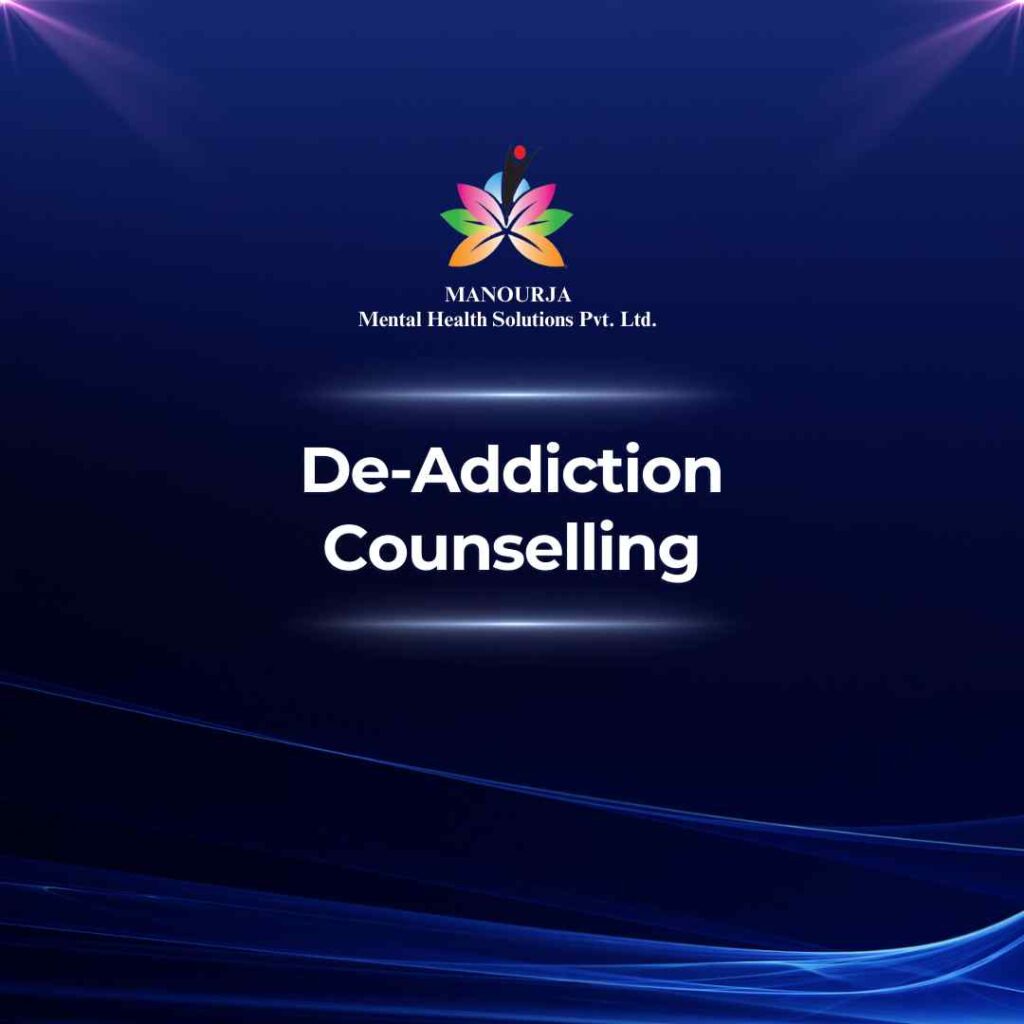De-Addiction Counselling

Addiction is a chronic, relapsing disorder characterized by compulsive drug seeking, continued use despite harmful consequences, and long-lasting changes in the brain. It is considered both a complex brain disorder and a mental illness. Addiction is not limited to substances like alcohol and drugs but can also include behaviors such as gambling.
Common Symptoms of Addiction Include
- Compulsive Engagement: Inability to stop using the substance or engaging in the behavior, despite the desire to do so.
- Increased Tolerance: Needing more of the substance or more intense involvement in the behavior to achieve the same effect.
- Withdrawal Symptoms: Experiencing physical or psychological symptoms such as nausea, restlessness, irritability, or depression when attempting to quit the behavior or substance.
- Neglect of Responsibilities: Failing to fulfill duties at work, school, or home due to substance use or behavior.
- Relationship Issues: Experiencing frequent conflicts with loved ones over the addictive behavior.
- Loss of Interest: Abandoning hobbies and activities that were once enjoyable.
- Risky Behavior: Engaging in dangerous activities under the influence or to obtain substances.
These symptoms can create a cycle of distress not only for the individual but also for family members who feel helpless or bewildered by their loved one’s actions.
How Counselling at MANOURJA Effectively Treats Addiction
Counselling is a pivotal component in treating addiction, focusing on the underlying psychological reasons for addiction, helping to develop new coping mechanisms, and encouraging behavioral changes.
- Cognitive Behavioral Therapy (CBT): Helps individuals recognize and change maladaptive behaviors and thought patterns related to their addiction, teaching them how to handle triggers and cravings effectively.
- Motivational Interviewing (MI): A client-centered Counselling style for eliciting behavior change by helping clients to explore and resolve ambivalence.
- Group Therapy: Provides peer support and reinforcement from others who are experiencing similar challenges, which can enhance the coping strategies learned in individual Counselling.
- Family Therapy: Involves family members in the treatment process, which can help repair and improve family dynamics affected by addiction.
Steps in MANOURJA’s Counselling Process for Addiction
- Comprehensive Assessment: Thorough evaluation to understand the extent of the addiction, including any co-occurring disorders or medical conditions.
- Goal Setting: Collaboratively setting clear, achievable goals that focus on abstinence, reducing harm, and addressing psychological and social aspects of addiction.
- Development of a Customized Treatment Plan: Creating a tailored plan that integrates effective therapies such as CBT, MI, group sessions, and family therapy.
- Regular Therapy Sessions: Conducting ongoing sessions that focus on skill development, relapse prevention, and addressing underlying psychological issues.
- Continuous Monitoring and Adaptation: Regularly assessing progress and adapting the treatment plan to meet evolving needs and challenges.
Through a comprehensive Counselling approach, MANOURJA helps individuals struggling with addiction to not only overcome their dependency but also build a foundation for sustained recovery and improved quality of life.
“Every sunrise is a new opportunity to renew your commitment to yourself”
